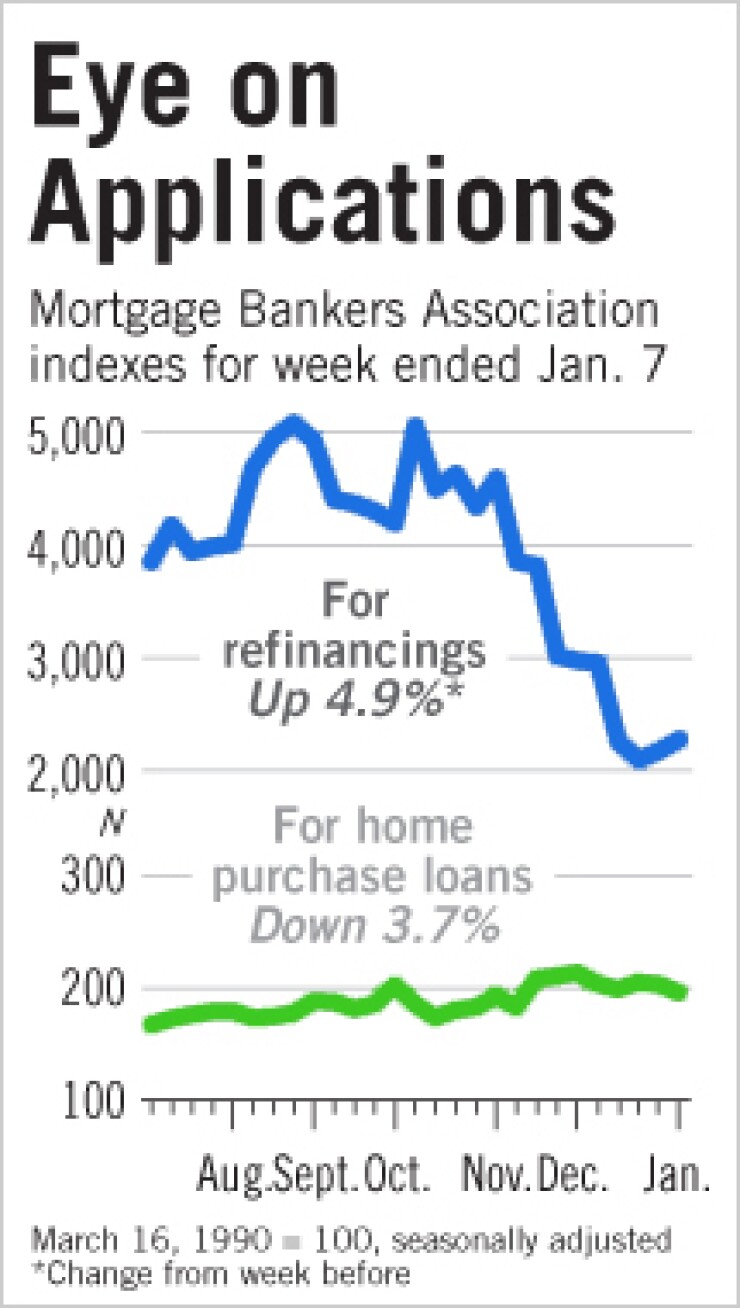
MBA v. Labor Dept.
The Mortgage Bankers Association
The
John Courson, the MBA's president and chief executive, said the ruling would make lenders vulnerable to lawsuits for past actions and require them "to make costly changes to their internal operations and compensation structure, costs that will ultimately be borne by the consumer."
The Labor Department's original 2004 regulation stated that "an employee whose primary duty is selling financial products does not qualify for the administrative exemption."
Lenders have fought the latest interpretation by claiming that loan officers perform administrative duties and should be exempt from the law because they look at consumers' financial statements.
Don Nichols, founder of the Minneapolis law firm Nichols Kaster LLP, said he has collected more than $50 million for loan officers around the country, including settlements at Wells Fargo & Co. and JPMorgan Chase & Co.
"That's a lot of settling for something the banks claim is meritless," Nichols said. "Everybody knows that loan officers are engaged in sales and they look at just enough information from the consumer to figure out which loan … to sell."
A closely watched case, involving Quicken Loans Inc., is scheduled for trial Feb. 8 in Detroit.
And Grass Is Green
During the financial crisis, consumers stopped seeking adjustable-rate mortgages, which has perplexed economists at the Federal Reserve Bank of New York.
In the December issue of its publication, Current Issues in Economics and Finance, a group of the bank's economists
The economists said several hypotheses have been offered to explain homeowners' relative preference for fixed-rate mortgages during the downturn. ARMs' market share has fallen near a record low of less than 10% of all residential originations, they noted.
A possible explanation is the collapse of the secondary market for subprime mortgages, which was dominated by ARMs. Without an outlet for selling subprime loans, lenders would no longer make them.
Another hypothesis is that households have become more risk-averse amid "reports of 'payment shock' associated with interest resets on ARMs."
A third conceivable interpretation is that the spread between fixed and adjustable rates had something to do with it.
The economists did a statistical analysis and found that "the low ARM share is largely consistent with long-run historical patterns … — namely, that households tend to prefer fixed-rate mortgages when long-term interest rates are low relative to recent short-term rates."
Certainly, other factors related to the financial crisis had some effect, they said. But one factor that appears not to have contributed to the drop in ARMs' share was the Fed's mortgage-backed security purchase program, which
The ARM share "was already at historic lows before the announcement of the program in November 2008," the economists wrote.





